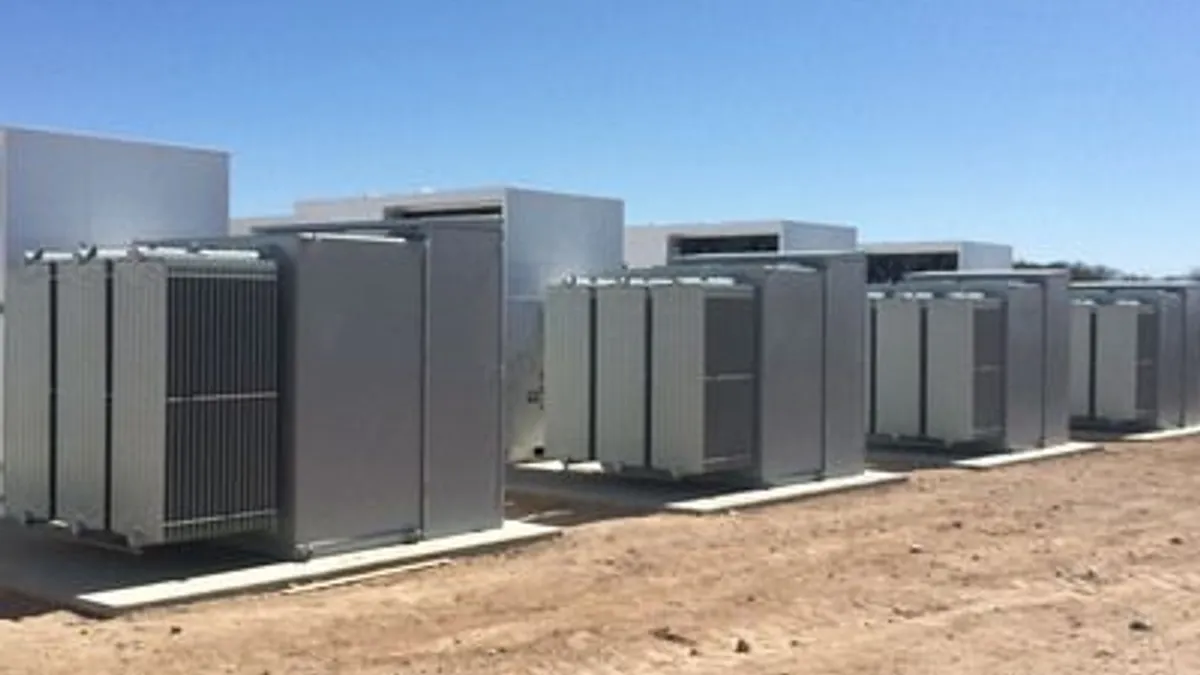Dive Brief:
-
Berlin-based energy storage company Younicos on Tuesday announced a service that will rent storage devices.
-
The company’s “Energy-Storage-as-a-Service” product is designed to meet immediate storage requirements and will initially focus on hybrid generation systems and microgrid applications for commercial and industrial customers.
-
Initially, Younicos said it will offer rental contracts with a 2- to 4-year minimum duration, but will make multi-month contracts available in 2019.
Dive Insight:
As the market for stationary storage grows, it is becoming more mobile. With the rental model that Younicos is introducing, a storage device can be put in place for a limited amount of time and moved when conditions change.
While not the first example of such leasing, Younicos's move demonstrates another way for storage companies to differentiate themselves.
“We believe that this offering extends the benefits of energy storage to a new segment of customers who, for one reason or another, value financial flexibility,” Alexander Schönfeldt, head of Europe, the Middle East and Africa sales for Younicos, said in a statement.
Under the company’s “Energy-Storage-as-a-Service” model, customers pay a rental fee, as well as mobilization and de-mobilization charges, but incur no other costs. The storage systems are housed in containers and can be shipped to the site, dropped in place and operated by Younicos.
“Younicos’s move makes sense,” considering that the company’s corporate parent is Aggreko, one of the largest rental providers of power generating equipment in the world, Tim Grejtak, an analyst at Lux Research, told Utility Dive. Younicos was acquired by Aggreko last year in a $52 million cash deal.
The move is another sign of a wider trend under way in the energy storage industry, Grejtak said. “We are starting to see more differentiation in financial business models, which is important,” he said.
At first, companies differentiated themselves by the assets or technology they offered. But the ubiquity of lithium-ion batteries obviated that, Grejtak said. Next, companies differentiated themselves with control software, but most companies now offer some form of software. “Now, companies are looking at differentiation by finance. We saw a similar differentiation in the solar industry when companies began to adopt the solar lease model,” Grejtak said.
Younicos’s model may be unique, but it is not the first company to offer an alternative to the outright purchase of a storage system or even a temporary storage solution.
Advanced Microgrid Solutions leases batteries to customers, while Stem provides storage-as-a-service, which allows them to also operate the batteries as grid assets that can sell services into the wholesale power market.
In addition, about one year ago, Consolidated Edison teamed up with NRG Energy for a $7.6 million, 1 MW, 4 MWh “Storage on Demand” demonstration project in New York City that includes battery arrays mounted on trucks.
ConEd plans to move the batteries into place to relieve distribution system constraints, most likely during the summer when peak load in New York City spikes.
When ConEd is not using the batteries, they live at NRG’s Astoria generating plant. From there, NRG is able to make the batteries available to the New York ISO’s wholesale electricity market.
Updates to clarify that Stem does not lease storage systems, but provides them as a service.














